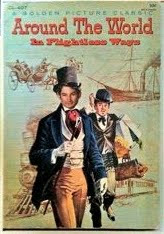
 For the past two nights, I stayed in one of the strangest places in my whole trip: an army barracks in a Prussian fortress built in the 1840s, called Boyen Fortress. It was on the edge of a town called Giżycko in the Masurian Lakes region of northern Poland. In the nineteenth century, the area was part of the Prussian empire close to the border of its rival Russian empire.
For the past two nights, I stayed in one of the strangest places in my whole trip: an army barracks in a Prussian fortress built in the 1840s, called Boyen Fortress. It was on the edge of a town called Giżycko in the Masurian Lakes region of northern Poland. In the nineteenth century, the area was part of the Prussian empire close to the border of its rival Russian empire.The building has been turned into a hostel but all that seems to mean is that they take your money and provide some sheets for the bed and that's all. It's probably popular in summertime but at this time of year I was the only one staying there. At first the idea seemed pretty cool, but when I returned to the barracks on my first night to a completely empty fortress (except for one security guard and a dog) the quiet hallways were eerie. I started wondering if it might be haunted by Prussian soldiers or by Nazi soldiers - it was occupied by the Germans during the second world war. It was also extremely cold, but since I was the only one there I could take a second duvet from one of the other beds. I managed a second night there but am glad to have left and found a nicer hotel to stay in.

Lake Niegocin

Giżycko canal


The Prussian military tradition was very strong, and as a result has a lot to answer for. The rout of France in 1870 and the grab of Alsace & Lorraine were important antecedents of the First World War; more importantly, so too was the increasing militarism of industrialised Germany - again put that down to the Prussians.
ReplyDeleteOne question that long bothered me about the Second World War was why career generals in the German army - many of whom were distinguished, highly intelligent soldiers - were disposed to follow Hitler so blindly, when he was a jumped up Austrian Corporal. Partly this is due to the Nazi system, whereby telling Hitler what he wanted to hear was the best career move. Partly of course they didn't - though there was no successful Generals' revolt - Von Manstein for example was very embittered about Hitler's refusal to follow his ideas on the Eastern Front. But to the extent they did follow him against their better ideas, I think it is fair to say that the Prussian tradition of following orders had some influence.
Having said that of course the French were just as bad in 1870, and arguably in 1914, it's just they weren't very good at it ...
ReplyDelete